Safe & secure Chromia wallet
Take control of your Chromia assets with complete confidence in the Trezor ecosystem.
- Secured by your hardware wallet
- Use with compatible hot wallets
- Trusted by over 2 million customers
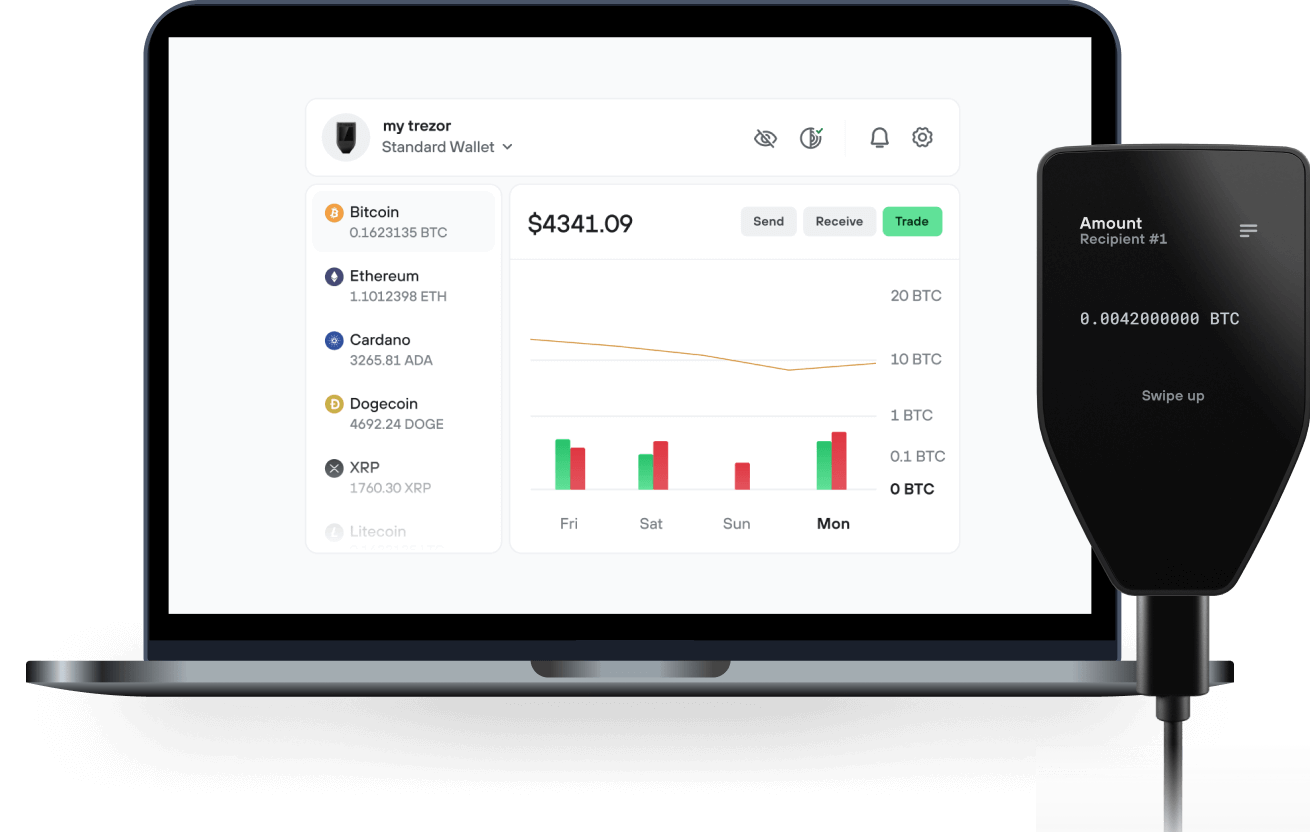
Send & receive your Chromia with the Trezor Suite app

Send & receive

Buy & swap
Trezor hardware wallets that support Chromia
Sync your Trezor with wallet apps
Manage your Chromia with your Trezor hardware wallet synced with several wallet apps.
Trezor Suite
MetaMask
Rabby
Supported Chromia Networks
- Ethereum
- BNB Smart Chain
Why a hardware wallet?
Go offline with Trezor
- You own 100% of your coins
- Your wallet is 100% safe offline
- Your data is 100% anonymous
- Your coins aren’t tied to any company
Online exchanges
- If an exchange fails, you lose your coins
- Exchanges are targets for hackers
- Your personal data may be exposed
- You don’t truly own your coins
How to CHR on Trezor
Connect your Trezor
Install Trezor Suite app
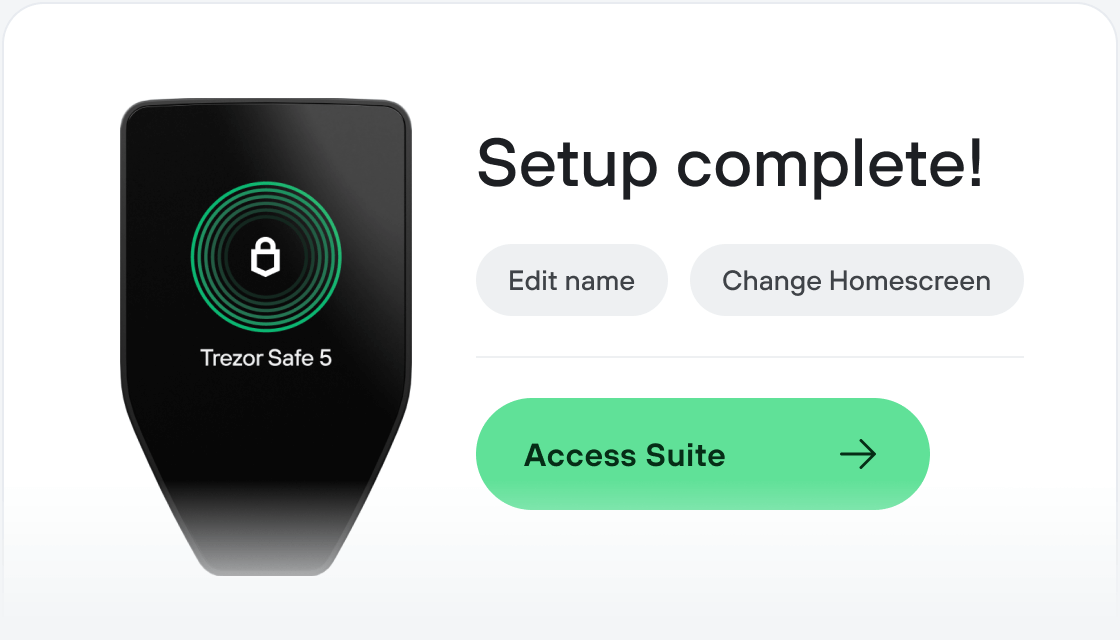
Transfer your CHR
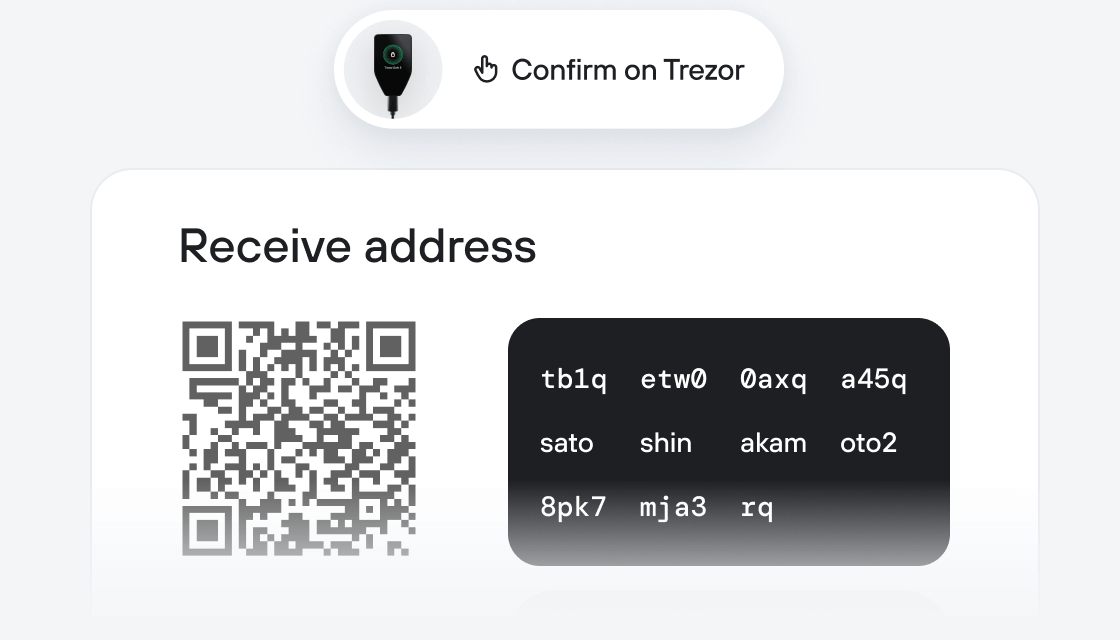
Make the most of your CHR
Trezor keeps your CHR secure
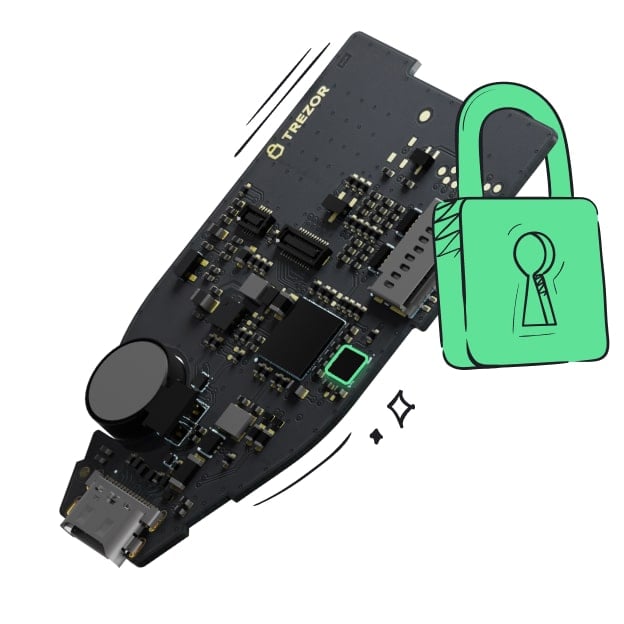 Protected by Secure Element
Protected by Secure ElementThe best defense against both online and offline threats
 Your tokens, your control
Your tokens, your controlAbsolute control of every transaction with on-device confirmation
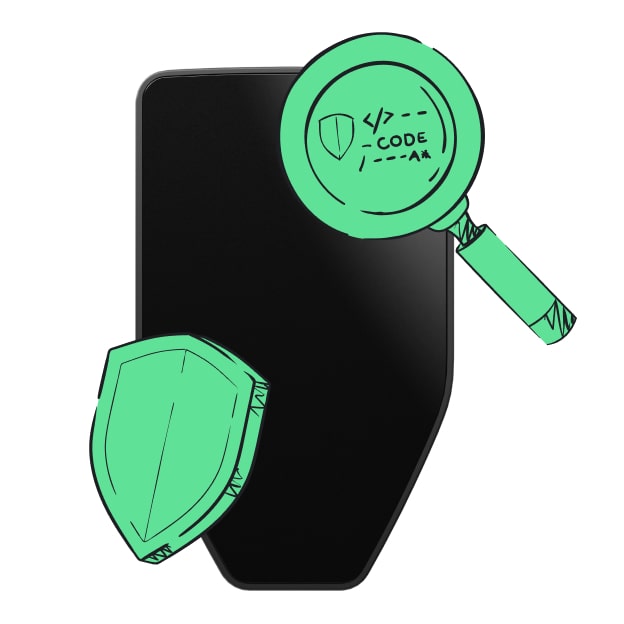 Security starts with open-source
Security starts with open-sourceTransparent wallet design makes your Trezor better and safer
 Clear & simple wallet backup
Clear & simple wallet backupRecover access to your digital assets with a new backup standard
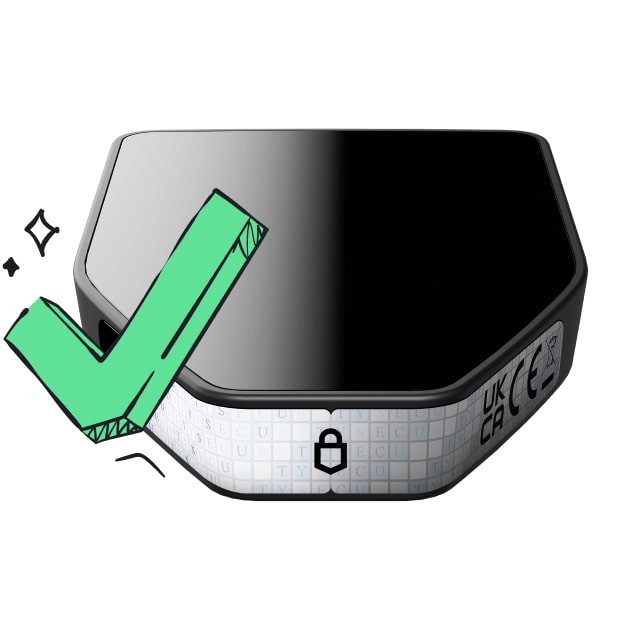 Confidence from day one
Confidence from day onePackaging & device security seals protect your Trezor’s integrity
What is Chromia? Chromia is an open source public blockchain conceived of by Swedish company Chromaway AB. The Chroma token (CHR) was launched in May of 2019. The technology behind the Chromia blockchain is adapted from an earlier technology called ‘Postchain’, a solution provided by Chromaway AB for enterprise clients.
How does Chromia work? Chromia is a standalone Layer-1 blockchain and EVM compatible Layer-2 enhancement for Binance Smart Chain and Ethereum. It is designed to enhance existing dApps and allow for the creation of next-generation dApps by providing scalability, improved data handling, and customizable fee structures. The blockchain uses a unique architecture called relational blockchain, as well as a custom programming language called Rell.
Rell is designed to code and function very similarly to SQL, allowing developers to leverage the security and immutability of blockchain while storing and handling data with the efficiency of a relational database. Each dApp running on Chromia operates on its own sidechain which is rooted in the main blockchain. This allows each application to scale more efficiently and gives each application developer the freedom to choose from a variety of fee structures. For example, one application may require users to pay transaction fees in CHR (similar to how Ethereum or Bitcoin work), while another application could stake enough CHR to reserve computational power and allow their users to make unlimited transactions without paying any fees at all.
What applications have been built on Chromia? Chromia already has a wide variety of applications building upon their blockchain, using their chain as a decentralized storage layer, and using their Layer-2 enhancements. These applications range from DeFi options trading platform Hedget, to open world farming game My Neighbor Alice, to government land registry initiative LAC PropertyChain. One of the latest features in development is a new NFT standard called Chromia Originals, which will operate both as a native standard on Chromia’s chain as well as an enhancement layer for existing ERC-721 and BEP-721 tokens. Work on these Layer-2 enhancements are being developed in cooperation with My Neighbor Alice.
Who is behind Chromia? Chromia’s core team consists of industry veterans Or Perelman, Henrik Hjelte and Alex Mizrahi. All three have deep roots in the crypto space, going back to the early days of Bitcoin and Ethereum. For example, Alex published several early academic papers on Proof of Stake consensus and was also one of the key figures behind Colored Coins, one of the first projects to develop the idea of ‘tokens’ that would later be brought to prominence by Ethereum.
In summary, Chromia is a Layer-1 and Layer-2 blockchain solution under active development, with the goal of delivering enhanced features and data handling and storage capabilities to decentralized applications.